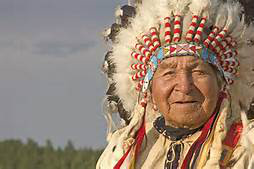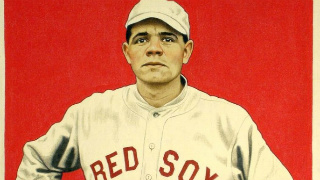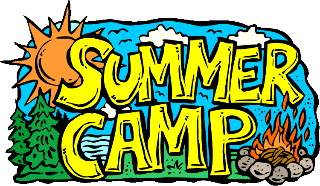Home
What
Story and Why
How
to
Tell
What's
New
Blog
Life
Story Resources
Research
is Fun
Get
Started
Highlight
Site
Sample
Writing
Free
Newsletter
Articles
About
Contact
Us
Privacy
Terms
|
The
"Your Life is Your Story" Blog Archives
Read
about
quality family history and life story news, views, methods, products,
links, services
...and whatever else catches the fancy of personal historian Tom Gilbert
July,
2016
current
blog entries
blog
archive
index
You Don't
Have to Agree to Listen
July 31, 2016
Let's face it - as soon as we disagree with someone it becomes really
hard to listen. We get defensive, on edge, start blocking out what they
are saying and considering our counter response. It reminds me of the
old Saturday Night Live skit with Jane Curtin and Dan Akroyd (here).
So how do we listen when we disagree? This was on Benjamin Mathes' mind
as he stood outside the Republican National Convention holding a "Free
Listening" sign.
He wrote a great post about
this and one of the key points he made was that we need to first get
the story about the person we disagree with (their biography, where
they are coming from) so you can open up the real possibility of
understanding.
We don't have to agree in order to listen. Asking someone to tell you
their story, how they came to their point of view, is much more
respectable than lashing out with your counterpoint and can help both
parties grow. As Stephen Covey's 7 Habits teach, as well as the prayer of St. Francis, "seek first
to understand, then to be understood".
David
Bald Eagle - An Amazing Life by a True American
July 28, 2016
I learned about a remarkable man who passed away last Friday at the age
of 97. This man lived an extraordinary life. Some of his experiences
included being a musician, professional baseball player, champion
ballroom dancer, rodeo cowboy, movie stunt double, actor, tribal chief
and war hero.
 The
biggest clue in all of that is tribal chief. Here was a real American.
This Lakota man, David Bald Eagle, has left quite a legacy and, I
think, example for the rest of us. In his amazing life he had plenty of
heartbreak including parachuting behind enemy lines in the Normandy
invasion during World War II and being shot so severely he nearly died.
In fact, the first medics to reach him left him for dead, but
fortunately sometime later British troops came across him and
discovered a faint pulse and saved his life. He was apparently a very
brave soldier. I think one of his heroic acts was re-enlisting. He'd
been discharged on December 7, 1941. That's right, Pearl Harbor Day.
When he got the news about the Japanese attack he immediately signed
back up. The
biggest clue in all of that is tribal chief. Here was a real American.
This Lakota man, David Bald Eagle, has left quite a legacy and, I
think, example for the rest of us. In his amazing life he had plenty of
heartbreak including parachuting behind enemy lines in the Normandy
invasion during World War II and being shot so severely he nearly died.
In fact, the first medics to reach him left him for dead, but
fortunately sometime later British troops came across him and
discovered a faint pulse and saved his life. He was apparently a very
brave soldier. I think one of his heroic acts was re-enlisting. He'd
been discharged on December 7, 1941. That's right, Pearl Harbor Day.
When he got the news about the Japanese attack he immediately signed
back up.
He met an English dance teacher while in the Army. After the war they
were married. Tragically she was killed in a car crash while pregnant
with his first child. He became somewhat suicidal and would do
incredibly risky things, such as race car driving, skydiving, bareback
bull riding and working as a stunt double in the movies. The thing is
he was so good at these death-defying activities that he became quite
successful.
He did find another love of his life years later, marrying a young
Belgian actress. They raised a large family on a ranch on the Cheyenne
River Reservation. He became a tribal chief. And he passed on the
history and stories of the Lakota people to younger generations,
keeping their legacies alive. There is a very good article about him on NPR.
This man showed what it means to live a full and meaningful life.
Live
Storytelling Popularity Keeps Growing
July 25, 2016
The craft of live storytelling is as old as, well, people talking to
each other. Much of history has been passed down orally. And someone
who can spin a good yarn will almost always have an audience.
Sharing elements of your life story to others in a live talking event
is a growing phenomenon. The
Moth,
a New York City nonprofit founded in 1997, has been credited with the
current popularity of live storytelling. In Tuscon, Arizona there are
some groups who are discovering they are building both community and
empathy with others by sharing elements of their personal experience in
live storytelling environments.
Odyssey Storytelling
is
one of these groups. "People are hungry for real stories, told from the
heart," relates executive director Jen Clark. One of the positives she
sees is how the relating of our stories helps break down stereotypes,
something our culture truly needs, as evidenced by much of the
divisiveness we are witnessing these days (see more with article at tuscon.com).
It can be intimidating to get up in front of people, especially
strangers, to reveal personal antidotes about your life. But it can
also be empowering. As a 5th grade teacher who also engages in personal
history work I am always encouraging the development of presentation
skills. We need to be able to express ourselves and the power of
storytelling is helpful in many areas of life.
Mentors that
Matter
July 18, 2016
If you are fortunate there have been people in your life who've had a
positive influence, perhaps even a life-changing impact. Thank goodness
that such people exist!
Stories of You Books
is a
publishing company looking for short (1000 words) essays about those
teachers, coaches, friends, parents or mentors who have been a good
role model and inspiration on a person's life. Do you have such a story
to share? Your mentor that matters could be well known or not. They
might be someone you've never actually met, except through reading and
learning about them. It's possible it could even be a fictional
character from a book or story that changed your life.
The plan is to publish an anthology, The Mentor that Matters,
sixty stories picked from the submissions. I am not connected to this
project in anyway, but I think it is worth sharing the information. The
deadline to enter is August 15. Give this some thought as you might
have a story about a helpful person in your life that could inspire
others. There is no entry fee or cost to submit; there will be no
payment to authors chosen. However, you could benefit from the
exposure, get two complimentary print copies and contribute to a
lasting legacy while paying tribute to someone who impacted your life
for the better.
Details are available here.
Liminal
Space Puts You on the Threshold of Real Change
July 13, 2016
There are certain times in our lives when real change can occur.
Usually these are times when we are taken out of "business as usual"
and we suddenly see things differently. It is as if we have a new pair
of glasses, a vision of reality that is clearer, more pristine, than we
realized.
This breakthrough in experiencing life is not always a happy occurence.
People get shaken to the core by loss and tragedy. This can also bring
about an awakening in our perceptions. And while we may feel
we
are seeing things clearer we also may be shaken in our understanding of
what it's all about.
When you are on the doorstep of such change you are on the threshold of
something special. Suddenly you are more open to the way things are. It is what it is
now means something more than a glib cliche.
People who know a lot more about this than me indicate that this
"standing on the threshold of real change" is called being in liminal
space. All true transformation takes place in this space. When you are
between the familiar and unknown real change and growth can occur.
Letting go of what we are certain of can be unsettling, but it can also
be freeing. You might feel a little crazy, but in the end I have found
these experiences have been profound.
I know that when I have been in liminal space I've found my writing is
deeper, richer, and more insightful. In a word, real.
Not all of our life story writing can be so dramatic, insightful or
"heavy". I don't think any of us could handle being in liminal space
all of the time. But I do hope that you experience it sometimes. And
when you do, pause and take some time to reflect on what you are going
through. It just might lead you to a greater insight and appreciation
for your life journey.
Debut of the
Babe
July 11, 2016
On this date in 1914 one of the greatest baseball players of all time
made his Major League debut.

Born George Herman Ruth, but forever immortalized as Babe Ruth, he was
a young lad of 19 when he pitched in his first game for the Boston Red
Sox. That's right, Babe Ruth the pitcher. Later he would become
renowned as a great hitter, the "Sultan of Swat" and the "Great
Bambino". But on this day he was a pitcher facing the Cleveland Indians
and he lasted seven innings and got the win, 4-3.
He also batted and was 0 for 2. No matter, the Red Sox
weren't
looking for an offensive star. They bought him from the Baltimore
Orioles early in that summer for his pitching potential. He was a
fresh-faced naive kid so his teammates nicknamed him "Babe". Over the
next few seasons Ruth was a great pitcher and twice a World Series
Champion for Boston. His hitting was also developing, but clearly Red
Sox owner Harry Frazee didn't fully appreciate the legend-in-the-making
he had when he sold him to the New York Yankees in 1920. The rest, as
they say, is history with Ruth becoming a great home run champion and
slugger, the Yankees a dynasty, and the Red Sox suffering the "Curse of
the Bambino" and not winning another World Series until 2004.
What you may not know about Babe Ruth was the hardship of his youth. He
could easily have slipped through the cracks and never had a chance at
baseball. He was one of eight children, but only he and a sister
survived infancy. He was such a naughty boy who skipped school so much
his parents sent him away to an orphanage, St. Mary's Industrial School
for Boys. (See This
Day in History and 10 things you didn't know about Babe Ruth
for more.)
Clearly not every life story is as remarkable as Babe Ruth's. But the
important events of our lives are many and varied. You have a story,
too. Have you considered saving it? You can get started with the first
step of getting more information on how
to begin.
Write,
Rest, Revise, Repeat
July 7, 2016
Doing writing on your life story can be tedious. Nevertheless, it is
important to stick with it and it is beneficial to have a regular
schedule to write. At the very least, you should set some writing
appointments. The discipline that results from regular writing sessions
will result in more progress than writing when you feel like it.
A warning, however, that obsessing over your writing is not a good
idea. Most first and early drafts are not going to be the best writing.
That's where revision comes in. And revision comes later, not
immediately following a draft. It's important to rest before you
revise.
Denis Ledoux of The
Memoir Network adressed this in a
recent article, Linger
With Your Story - It's a Good Habit to Develop.
He makes the point that many people write too fast in the sense that
they rush the finished writing process. As a result they often don't
get the full story or the depth that they could. Quality of the
manuscript suffers.
I like to write, rest, revise and then repeat that process. Eventually
you do have to decide that a piece of writing is done. But it might
take several revisions. Giving some breathing room between writing and
revisions allows you to come back to your writing with "fresh" eyes.
That can often give you more insight with your story. You might
remember more details. You can add more description and detail. You can
make some choices about what more to add, and just as important, what
to take out.
When you approach your writing with a plan to write, rest, revise and
repeat you will inevitably create richer stories. Give it a try.
Summer
Camp Then and Now
July 6, 2016

I remember going to summer camp. It was something I did every summer,
but there were a few times I got to go. Sometimes it was with the Boy
Scouts. Other times it was through a youth or church group. It always
was an enjoyable experience and once in a while I get nostalgic about
the camping, games, horseback riding, swimming, singing around
campfires and telling ghost stories.
Just taking the time to write about a summer camp experience starts to
bring up memories. Isn't it interesting how the very act of writing
helps with this. If you find it challenging to write about your past
you might try some free writing on a topic like the time you went to a
summer camp (or a similar experience). Of course, making a Memory List
is always a terrific helper.
Apparently there is a growing market for people to revisit the good
times of a summer camp experience by going to camp as an adult. These
camps offer the nostalgia of a traditional summer camp, but they add
some grownup twists. We're not talking "Survivor", but it looks
interesting. Sometimes they are called "summer retreats". The business
is growing for grownups who long for a getaway, but it's not
inexpensive.
An article in The
Guardian, Summer camp with an open bar: retreats for
stressed-out adults are big business, tells you more
about some of the pros and cons of adult summer camps.
|







 The
biggest clue in all of that is tribal chief. Here was a real American.
This Lakota man, David Bald Eagle, has left quite a legacy and, I
think, example for the rest of us. In his amazing life he had plenty of
heartbreak including parachuting behind enemy lines in the Normandy
invasion during World War II and being shot so severely he nearly died.
In fact, the first medics to reach him left him for dead, but
fortunately sometime later British troops came across him and
discovered a faint pulse and saved his life. He was apparently a very
brave soldier. I think one of his heroic acts was re-enlisting. He'd
been discharged on December 7, 1941. That's right, Pearl Harbor Day.
When he got the news about the Japanese attack he immediately signed
back up.
The
biggest clue in all of that is tribal chief. Here was a real American.
This Lakota man, David Bald Eagle, has left quite a legacy and, I
think, example for the rest of us. In his amazing life he had plenty of
heartbreak including parachuting behind enemy lines in the Normandy
invasion during World War II and being shot so severely he nearly died.
In fact, the first medics to reach him left him for dead, but
fortunately sometime later British troops came across him and
discovered a faint pulse and saved his life. He was apparently a very
brave soldier. I think one of his heroic acts was re-enlisting. He'd
been discharged on December 7, 1941. That's right, Pearl Harbor Day.
When he got the news about the Japanese attack he immediately signed
back up.
